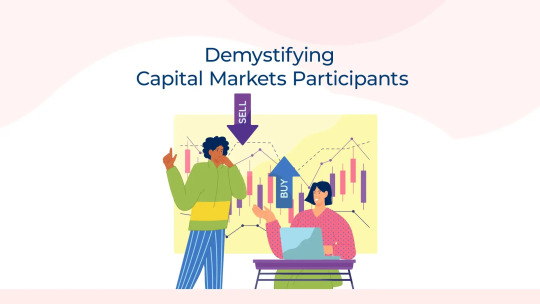#Capital Market
Text
XII BST : Financial Market
Learning Objective
Learning Outcomes
Meaning & Concept of Financial Market
Function of Financial Markets
Concept of Money Market
Money Market Instruments
Concept of Capital Market
Comparative View : Money Market & Capital Market
Primary Market
Secondary Market / Stock Exchange
Function of Stock Exchange
Trading and Settlement of Stock Exchange
Security Exchange Board of…
View On WordPress
#Capital Market#Development Function of SEB#Financial Management#Financial Market-Concept-Functions#Function of SEBI#Function of Stock Exchange#Instrument of Money Market#MONEY MARKET#PRIMARY MARKET#Protective Function of SEBI#Regulatory Function of SEBI#Screen Based Trading Procedure#SECONDARY MARKET#Security Exchange Board of India#SETTLEMENT PROCEDURE#TRADING AND SETTLEMENT PROCEDURE#TRADING PROCEDURE
3 notes
·
View notes
Text
BSE Institute offers a range of financial courses and certifications. Enroll and advance your career with the best financial courses with 100% placement assistance.
#Financial courses#finance courses#bms course#course of bms#capital market#what is capital market#bba course#bba subjects
2 notes
·
View notes
Text
Market capitalization, often referred to as market cap, is a fundamental concept in the world of finance. It represents the total value of a company’s outstanding shares of stock and is a key metric used by investors to assess a company’s size and worth. Understanding market capitalization is essential for evaluating investment opportunities and building a diversified portfolio. In this comprehensive guide, we will explore the concept of market capitalization, its calculation, the different categories of companies based on market cap, and the factors that can impact a company’s market cap.
#finance#capitalism#Capital#Capital Market#FinancialPlanning#InvestmentTips#Market#New Trends in Indian Stock Market
0 notes
Text
Blog 16: Free AMC for your Demat Account (BSDA)
Hello everyone, welcome back. In this post, you will get information about how you can avail of zero annual maintenance charges for your Demat account in any broker.
So SEBI (Securities and Exchange Board of India) has started a facility called Basic Service Demat Account also called BSDA. This is basically made for small investors so that they can start investing in capital markets without…

View On WordPress
1 note
·
View note
Text
Demystifying Capital Markets Participants
The terminology capital markets by itself can be confusing. Added to that, a whole slew of entities within the eco-system performing different roles – it starts to get too overwhelming!

What is Capital Market?
It simply denotes a financial market in which long-term debt or equity-backed securities are bought and sold.
First, what is a demat account?
Demat is short for dematerialized account. Earlier, when you had to buy or sell shares, bonds, or mutual funds, you would do it in physical form. It was typically a paper certificate with details on it.
Now this created a host of issues – for larger investors, these physical papers took up a lot of space. Additionally, they were prone to tampering, forgery and getting them delivered physically was a cumbersome process.
So, in 1996, India implemented demat accounts, where all these shares, bonds or mutual funds were converted to digital form in an account. Simply put, you open a dematerialized account with a depository and all your securities (bonds/shares/mutual funds) are deposited in this account in electronic form.
Depository – your securities database
Just like banks hold your money, depositories are entities that hold your financial securities like stocks, bonds, and mutual funds. Presently, there are two depositories in India –
NSDL (National Securities Depository Limited)
CDSL (Central Depository Services Limited)
NSDL is promoted by...Read more to click here.
0 notes
Text
You know, it's rather interesting to me that Taylor Swift's parasocial relationship with her fans is honestly more akin to a YouTuber than a writer's. When I scroll through her tag on tumblr/Twitter, it's far more regarding the connection to her personal life/relationship developments than the actual metaphors/fictional story she might be telling. Everything comes back to how her songs reflect back on her relationships with Joe/Matty/Travis/Jake/insert ex-boyfriend here. And what fascinates me about it is that even though she complains about it, she leans into that very perception because it strengthens the parasocial bond.
The marketing for TTPD so clearly being about Joe Alwyn and the songs to Matty Healy. The marketing/video for Red TV so CLEARLY being about Jake Gyllenhaal, with so many of the new lines in All Too Well specifically being digs at him (I'll get older but your lovers stay my age, casting an actor that looks like him for the video, specific lines in I Bet You Think About Me). The fact that songs like Getaway Car and Bejeweled and Gorgeous and London Boy and Lavender Haze being picked apart at time of release and long after for signs of relationships crumbling. The way she uses surprise songs in relation to her relationship development with Joe/Matty/Travis. The damn TTPD "stages of grief" playlists where she deliberately undid/changed the meanings of old songs just to keep her audience speculating on her love life.
It's not sexist to point out that her wielding her love life is a marketing tool and that the strongest connection to her audience isn't the strength of her writing/the composition of her music- it's her deliberate crafting of a connection between her music and her personal life, leaving the audience invested in her music as an extension of Taylor the Person/Girlfriend rather than Taylor the Artist.
#taylor swift#anti taylor swift#to an extent#i honestly just view this as an analysis of her marketing strategy#like hates off to her for being the best possible microcosm of parasocial capitalism#girlie really knew how to harness the teen girl market and good for her billionaire self#she knows how to exploit the very tabloid culture that once strangled her#how to become the tabloid itself#and wield that against ex-boyfriends too but you didn’t hear that from me#joe alwyn#matty healy#travis kelce#taylor swift critical#ttpd#red tv#i bet you think about me#getaway car#bejeweled#gorgeous#london boy#lavender haze
2K notes
·
View notes
Text

PFTDGEHSJSJDYTE I CANT BELIEVE MONKEY D. LUFFY HAS TAKEN OVER TUMBLR!!!
At first sight I was like, oh cool! I see they’ve added a Luffy tab on my dashboard, because I love one piece. And then I look down the luffy tag,,, AND THERE ARE SO MANY PEOPLE WHO JUST. DON’T KNOW WHO HE IS XD. That must mean THEY’VE JUST ADDED HIM TO EVERYONE’S DASHBOARDS WAHAHAHA!
First of all, it’s pronounced loo-fee. Second of all, he’s from hit series One Piece and you better not forget it!!!
#one piece#op fanart#monkey d. luffy#Luffy#<<<< hes taking over tumblr… LUFFY SWEEP LUFFY SWEEP#edit: oughth nooo its less fun if its related to netflix paid marketing T ^ T#i thought some funky one piece fan moderator just got a lil silly... not capitalism!!1!1!1!#edit edit: I hope this doesnt breach containment… but to any non-one piece enjoyers… we one piece fans also dont condone this advertising!!#edit edit edit: ITS CHANGED TO ZORO I KNOW I KNOW I KNOOOWWWW T ^ T!!!!
5K notes
·
View notes
Text
Greenwashing set Canada on fire

On September 22, I'm (virtually) presenting at the DIG Festival in Modena, Italy. On September 27, I'll be at Chevalier's Books in Los Angeles with Brian Merchant for a joint launch for my new book The Internet Con and his new book, Blood in the Machine.

As a teenager growing up in Ontario, I always envied the kids who spent their summers tree planting; they'd come back from the bush in September, insect-chewed and leathery, with new muscle, incredible stories, thousands of dollars, and a glow imparted by the knowledge that they'd made a new forest with their own blistered hands.
I was too unathletic to follow them into the bush, but I spent my summers doing my bit, ringing doorbells for Greenpeace to get my neighbours fired up about the Canadian pulp-and-paper industry, which wasn't merely clear-cutting our old-growth forests – it was also poisoning the Great Lakes system with PCBs, threatening us all.
At the time, I thought of tree-planting as a small victory – sure, our homegrown, rapacious, extractive industry was able to pollute with impunity, but at least the government had reined them in on forests, forcing them to pay my pals to spend their summers replacing the forests they'd fed into their mills.
I was wrong. Last summer's Canadian wildfires blanketed the whole east coast and midwest in choking smoke as millions of trees burned and millions of tons of CO2 were sent into the atmosphere. Those wildfires weren't just an effect of the climate emergency: they were made far worse by all those trees planted by my pals in the eighties and nineties.
Writing in the New York Times, novelist Claire Cameron describes her own teen years working in the bush, planting row after row of black spruces, precisely spaced at six-foot intervals:
https://www.nytimes.com/2023/09/15/opinion/wildfires-treeplanting-timebomb.html
Cameron's summer job was funded by the logging industry, whose self-pegulated, self-assigned "penalty" for clearcutting diverse forests of spruce, pine and aspen was to pay teenagers to create a tree farm, at nine cents per sapling (minus camp costs).
Black spruces are made to burn, filled with flammable sap and equipped with resin-filled cones that rely on fire, only opening and dropping seeds when they're heated. They're so flammable that firefighters call them "gas on a stick."
Cameron and her friends planted under brutal conditions: working long hours in blowlamp heat and dripping wet bulb humidity, amidst clouds of stinging insects, fingers blistered and muscles aching. But when they hit rock bottom and were ready to quit, they'd encourage one another with a rallying cry: "Let's go make a forest!"
Planting neat rows of black spruces was great for the logging industry: the even spacing guaranteed that when the trees matured, they could be easily reaped, with ample space between each near-identical tree for massive shears to operate. But that same monocropped, evenly spaced "forest" was also optimized to burn.
It burned.
The climate emergency's frequent droughts turn black spruces into "something closer to a blowtorch." The "pines in lines" approach to reforesting was an act of sabotage, not remediation. Black spruces are thirsty, and they absorb the water that moss needs to thrive, producing "kindling in the place of fire retardant."
Cameron's column concludes with this heartbreaking line: "Now when I think of that summer, I don’t think that I was planting trees at all. I was planting thousands of blowtorches a day."
The logging industry committed a triple crime. First, they stole our old-growth forests. Next, they (literally) planted a time-bomb across Ontario's north. Finally, they stole the idealism of people who genuinely cared about the environment. They taught a generation that resistance is futile, that anything you do to make a better future is a scam, and you're a sucker for falling for it. They planted nihilism with every tree.
That scam never ended. Today, we're sold carbon offsets, a modern Papal indulgence. We are told that if we pay the finance sector, they can absolve us for our climate sins. Carbon offsets are a scam, a market for lemons. The "offset" you buy might be a generated by a fake charity like the Nature Conservancy, who use well-intentioned donations to buy up wildlife reserves that can't be logged, which are then converted into carbon credits by promising not to log them:
https://pluralistic.net/2020/12/12/fairy-use-tale/#greenwashing
The credit-card company that promises to plant trees every time you use your card? They combine false promises, deceptive advertising, and legal threats against critics to convince you that you're saving the planet by shopping:
https://pluralistic.net/2021/11/17/do-well-do-good-do-nothing/#greenwashing
The carbon offset world is full of scams. The carbon offset that made the thing you bought into a "net zero" product? It might be a forest that already burned:
https://pluralistic.net/2022/03/11/a-market-for-flaming-lemons/#money-for-nothing
The only reason we have carbon offsets is that market cultists have spent forty years convincing us that actual regulation is impossible. In the neoliberal learned helplessness mind-palace, there's no way to simply say, "You may not log old-growth forests." Rather, we have to say, "We will 'align your incentives' by making you replace those forests."
The Climate Ad Project's "Murder Offsets" video deftly punctures this bubble. In it, a detective points his finger at the man who committed the locked-room murder in the isolated mansion. The murderer cheerfully admits that he did it, but produces a "murder offset," which allowed him to pay someone else not to commit a murder, using market-based price-discovery mechanisms to put a dollar-figure on the true worth of a murder, which he duly paid, making his kill absolutely fine:
https://pluralistic.net/2021/04/14/for-sale-green-indulgences/#killer-analogy
What's the alternative to murder offsets/carbon credits? We could ask our expert regulators to decide which carbon intensive activities are necessary and which ones aren't, and ban the unnecessary ones. We could ask those regulators to devise remediation programs that actually work. After all, there are plenty of forests that have already been clearcut, plenty that have burned. It would be nice to know how we can plant new forests there that aren't "thousands of blowtorches."
If that sounds implausible to you, then you've gotten trapped in the neoliberal mind-palace.
The term "regulatory capture" was popularized by far-right Chicago School economists who were promoting "public choice theory." In their telling, regulatory capture is inevitable, because companies will spend whatever it takes to get the government to pass laws making what they do legal, and making competing with them into a crime:
https://pluralistic.net/2022/06/13/public-choice/#ajit-pai-still-terrible
This is true, as far as it goes. Capitalists hate capitalism, and if an "entrepreneur" can make it illegal to compete with him, he will. But while this is a reasonable starting-point, the place that Public Choice Theory weirdos get to next is bonkers. They say that since corporations will always seek to capture their regulators, we should abolish regulators.
They say that it's impossible for good regulations to exist, and therefore the only regulation that is even possible is to let businesses do whatever they want and wait for the invisible hand to sweep away the bad companies. Rather than creating hand-washing rules for restaurant kitchens, we should let restaurateurs decide whether it's economically rational to make us shit ourselves to death. The ones that choose poorly will get bad online reviews and people will "vote with their dollars" for the good restaurants.
And if the online review site decides to sell "reputation management" to restaurants that get bad reviews? Well, soon the public will learn that the review site can't be trusted and they'll take their business elsewhere. No regulation needed! Unleash the innovators! Set the job-creators free!
This is the Ur-nihilism from which all the other nihilism springs. It contends that the regulations we have – the ones that keep our buildings from falling down on our heads, that keep our groceries from poisoning us, that keep our cars from exploding on impact – are either illusory, or perhaps the forgotten art of a lost civilization. Making good regulations is like embalming Pharaohs, something the ancients practiced in mist-shrouded, unrecoverable antiquity – and that may not have happened at all.
Regulation is corruptible, but it need not be corrupt. Regulation, like science, is a process of neutrally adjudicated, adversarial peer-review. In a robust regulatory process, multiple parties respond to a fact-intensive question – "what alloys and other properties make a reinforced steel joist structurally sound?" – with a mix of robust evidence and self-serving bullshit and then proceed to sort the two by pantsing each other, pointing out one another's lies.
The regulator, an independent expert with no conflicts of interest, sorts through the claims and counterclaims and makes a rule, showing their workings and leaving the door open to revisiting the rule based on new evidence or challenges to the evidence presented.
But when an industry becomes concentrated, it becomes unregulatable. 100 small and medium-sized companies will squabble. They'll struggle to come up with a common lie. There will always be defectors in their midst. Their conduct will be legible to external experts, who will be able to spot the self-serving BS.
But let that industry dwindle to a handful of giant companies, let them shrink to a number that will fit around a boardroom table, and they will sit down at a table and agree on a cozy arrangement that fucks us all over to their benefit. They will become so inbred that the only people who understand how they work will be their own insiders, and so top regulators will be drawn from their own number and be hopelessly conflicted.
When the corporate sector takes over, regulatory capture is inevitable. But corporate takeover isn't inevitable. We can – and have, and will again – fight corporate power, with antitrust law, with unions, and with consumer rights groups. Knowing things is possible. It simply requires that we keep the entities that profit by our confusion poor and thus weak.
The thing is, corporations don't always lie about regulations. Take the fight over working encryption, which – once again – the UK government is trying to ban:
https://www.theguardian.com/technology/2023/feb/24/signal-app-warns-it-will-quit-uk-if-law-weakens-end-to-end-encryption
Advocates for criminalising working encryption insist that the claims that this is impossible are the same kind of self-serving nonsense as claims that banning clearcutting of old-growth forests is impossible:
https://twitter.com/JimBethell/status/1699339739042599276
They say that when technologists say, "We can't make an encryption system that keeps bad guys out but lets good guys in," that they are being lazy and unimaginative. "I have faith in you geeks," they said. "Go nerd harder! You'll figure it out."
Google and Apple and Meta say that selectively breakable encryption is impossible. But they also claim that a bunch of eminently possible things are impossible. Apple claims that it's impossible to have a secure device where you get to decide which software you want to use and where publishers aren't deprive of 30 cents on every dollar you spend. Google says it's impossible to search the web without being comprehensively, nonconsensually spied upon from asshole to appetite. Meta insists that it's impossible to have digital social relationship without having your friendships surveilled and commodified.
While they're not lying about encryption, they are lying about these other things, and sorting out the lies from the truth is the job of regulators, but that job is nearly impossible thanks to the fact that everyone who runs a large online service tells the same lies – and the regulators themselves are alumni of the industry's upper eschelons.
Logging companies know a lot about forests. When we ask, "What is the best way to remediate our forests," the companies may well have useful things to say. But those useful things will be mixed with actively harmful lies. The carefully cultivated incompetence of our regulators means that they can't tell the difference.
Conspiratorialism is characterized as a problem of what people believe, but the true roots of conspiracy belief isn't what we believe, it's how we decide what to believe. It's not beliefs, it's epistemology.
Because most of us aren't qualified to sort good reforesting programs from bad ones. And even if we are, we're probably not also well-versed enough in cryptography to sort credible claims about encryption from wishful thinking. And even if we're capable of making that determination, we're not experts in food hygiene or structural engineering.
Daily life in the 21st century means resolving a thousand life-or-death technical questions every day. Our regulators – corrupted by literally out-of-control corporations – are no longer reliable sources of ground truth on these questions. The resulting epistemological chaos is a cancer that gnaws away at our resolve to do anything about it. It is a festering pool where nihilism outbreaks are incubated.
The liberal response to conspiratorialism is mockery. In her new book Doppelganger, Naomi Klein tells of how right-wing surveillance fearmongering about QR-code "vaccine passports" was dismissed with a glib, "Wait until they hear about cellphones!"
https://pluralistic.net/2023/09/05/not-that-naomi/#if-the-naomi-be-klein-youre-doing-just-fine
But as Klein points out, it's not good that our cellphones invade our privacy in the way that right-wing conspiracists thought that vaccine passports might. The nihilism of liberalism – which insists that things can't be changed except through market "solutions" – leads us to despair.
By contrast, leftism – a muscular belief in democratic, publicly run planning and action – offers a tonic to nihilism. We don't have to let logging companies decide whether a forest can be cut, or what should be planted when it is. We can have nice things. The art of finding out what's true or prudent didn't die with the Reagan Revolution (or the discount Canadian version, the Mulroney Malaise). The truth is knowable. Doing stuff is possible. Things don't have to be on fire.



If you'd like an essay-formatted version of this post to read or share, here's a link to it on pluralistic.net, my surveillance-free, ad-free, tracker-free blog:
https://pluralistic.net/2023/09/16/murder-offsets/#pulped-and-papered
#pluralistic#logging#pulp and paper#ontario#greenwashing#a market for lemons#incentives matter#capitalism#late-stage capitalism#climate emergency#wildfires#canada#canpoli#ontpoli#carbon offsets#self-regulation#nerd harder#epistemological chaos#regulatory capture#Claire Cameron#pines in lines
3K notes
·
View notes
Text
Capital market Stakeholders target higher GDP contribution
Capital market Stakeholders target higher GDP contribution
The 10% contribution of Nigeria’s capital market to the GDP has drawn criticism from market participants.
The stakeholders said that the Nigerian capital market’s present contribution to the GDP was insufficient during the Institute of Capital Market Registrars’ 11th Annual Conference on Saturday in Lagos.
Speaking at the conference with the theme “Sustainability of the Nigerian Capital Market as…

View On WordPress
0 notes
Text
Business Analyst (Capital market)(Onsite on january)
Business Analyst (Capital market)(Onsite on january)
Role: Business Analyst with Capital Market
Exp: 9+ years
Location: LA (Onsite from January)
Visa: Other Than Opt’s
MOI: Phone + Skype
Skills Required:
Significant industry knowledge and expertise with Fixed Income Product Front office products preferably Aladdin, Perform etc.
Basic understanding of PL/SQL, Python, VB etc. to drive the discussion with development team.
Deeply rooted in Agile,…

View On WordPress
0 notes
Text
Certificate Program In Investment Banking Operations course
The employment opportunities in Investment banking back office operations has been growing steadily at the rate of 15% over the last 5 years. It has been estimated that the growth rate will further accelerate due to the fact that the sector has matured. It will also develop capabilities to handle higher end complex processes.
#Financial courses#finance courses#bms course#course of bms#capital market#what is capital market#bba course#bba subjects
0 notes
Text
Finders Keepers warm up sketches b4 I start designing some character stuff


I missed themm
The DCAs arms/hands keep breaking because of how much they move and do silly acrobatics, pairing that with some leftover water+fire damage, it is one of the things that Y/N has to repair often;
New compatible parts are hard to find + expensive (considering how old the DCAs model is), so Y/N normally has to go to old faztech electronic trash dumps to find something that might work, which is usually pieces of other similar-looking Attendants from some old FAZCO animatronic line. You really hope sun and moon don't know about this, or else things will get awkward
#can I lore dump in the tags b4 my motivation for it runs out?#in this au FAZCO grew in the market and started to create animatronics for other needs#Entertainment. housecare. childcare. minor maintenance. repetitive jobs#ofc that the BEST animatronics stayed with fazco for their restaurant/pizzeria franchises#but faztech was basically everywhere now#like they probably had disney or google levels of growth#Anyways for lore reasons that i will still mention later#these faztech electronic trash wastes are certainly common#not only due to planned obsolescence but something else THAT I CANNOT MENTION RN#anyways yes there was a moment that there WERE many DCA looking walking around#but now like. half of them are in these trash dumps#we hate capitalism here 💛 fuck fazco megacorp arc#dca posting#mars artz#dca#dca au#dca sun#sun#fnaf au#y/n#dca x y/n#sun x y/n#finders keepers au
583 notes
·
View notes
Text

3K notes
·
View notes
Text
youtube
Every company needs day traders to trade its stock for sustainable growth and value. But here’s the issue: As a result of the increasing number of public companies, small-cap companies can’t connect with investors today. So, there’s an obvious gap between companies and investors. Hence, SteinbergValentino Group created OTC Markets investor relations firm to bridge this gap.
Get more info ↦ https://www.steinbergvalentino.com/otc-markets-investor-relations-firm/
#SV Group#OTC Markets Investor Relations Firm#Investor Firm#Investor Relations#Investment Advice#Wealth Management#OTC Stock#OTC Markets Firm#IR Firm#Investor Relations Firm NYC#SteinbergValentino Group#Stock Business#Team Investor Relations#An Investor Relations#Capital Market#Investor Relations Solutions#Small Cap Investor Relations#Investor Relations Specialist#Investor Relations Consulting#Youtube
0 notes